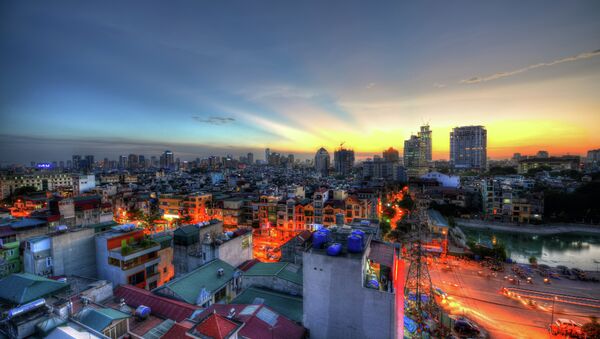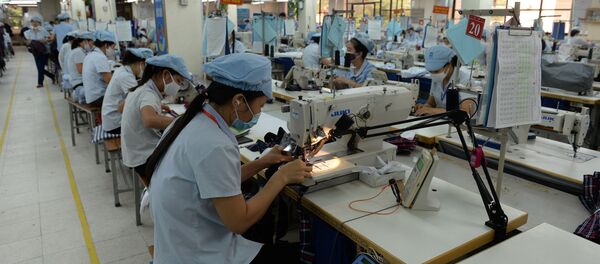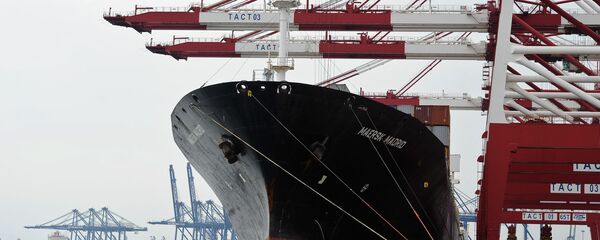While the new balance of power is taking shape in the Southeast Asian region, Hanoi is trying to reconcile itself to reality.
"More so than most of its neighbors, Vietnam can neither fully reject nor embrace the growing power on its northern border," Strategic Forecasting, Inc. (Stratfor) pointed out in its latest analytical report of the Asia Pacific region, in a reference to China.
"Some, such as the Philippines and Malaysia, have eagerly joined Chinese-led trade blocs and dispute-settling mechanisms. Others, like Japan and Singapore, have firmly backed Washington's regional agenda. Vietnam has historically opted to strike a delicate balance between the two, but as the region adjusts to a new political reality, Hanoi's strategy is becoming increasingly difficult to pull off," the report stated.
"Choosing between US- and Chinese-led initiatives in trade and security has not been an option for Vietnam since the Cold War ended," the report noted, adding that Hanoi has taken full advantage of its location by maintaining relations with the US, China and ASEAN nations.
The analysts pointed out that Hanoi has long been one of the "staunchest advocates" for the Trans-Pacific Partnership (TPP). However, it has recently backed off from the deal.
Shortly after Donald Trump's win in the US presidential election Vietnamese Prime Minister Nguyen Xuan Phuc announced that although the country's legislature was almost certain to ratify the TPP agreement, Hanoi would shelve the US-led trade accord.
"The United States has announced it suspends the submission of TPP to the parliament so there are not sufficient conditions for Vietnam to submit its proposal for ratification," the Prime Minister told the National Assembly on November 17, as cited by Reuters.
Hanoi "doesn't put all its eggs in one basket," Pham Quang Minh, rector of Hanoi National University's University of Social Sciences and Humanities, highlighted in his November interview with Sputnik Vietnamese.
He admitted, however, that "the TPP was a hope for Vietnam for some time."
"Vietnam has always worked from the principle 'don't put all your eggs in one basket,' and wasn't completely relying on TPP. But now it is necessary to activate economic reforms. Vietnam has to wake up and quickly adapt to the new economic situation," Pham told Sputnik.
Stratfor's analysts called attention to the fact that Vietnam's motives for striking these trade and investment agreements with China and the EEU "are not solely economic."
"Hanoi's deal with the Eurasian Economic Union, for instance, offers only limited access to the bloc's market but lays the groundwork for a stronger military and energy partnership with Russia, its former ally," the report highlighted.
And so are other Washington's longstanding allies in Southeast Asia, according to Douglas H. Paal, director of the Asia Program at the Carnegie Endowment for International Peace.
"Traditional American allies Thailand and the Philippines are increasingly estranged from Washington, leaving greater scope for Beijing to cultivate influence," Paal noted in his op-ed for South China Morning Post.
"As the Trump administration gathers itself, it should take stock of the post-cold-war re-emergence of regional great powers… Moscow, Beijing and Delhi will join the US in defining the future of Asia, and Washington should figure out how best to advance its interests in this new era," the American academic stressed.





